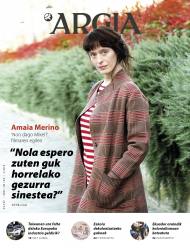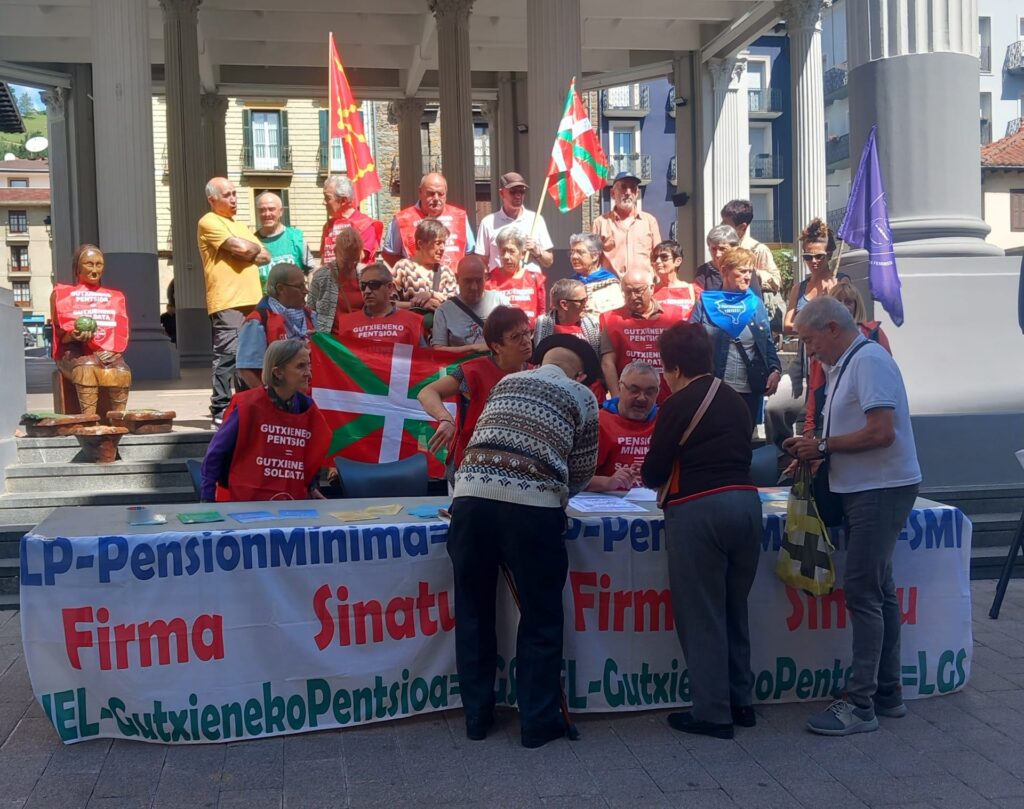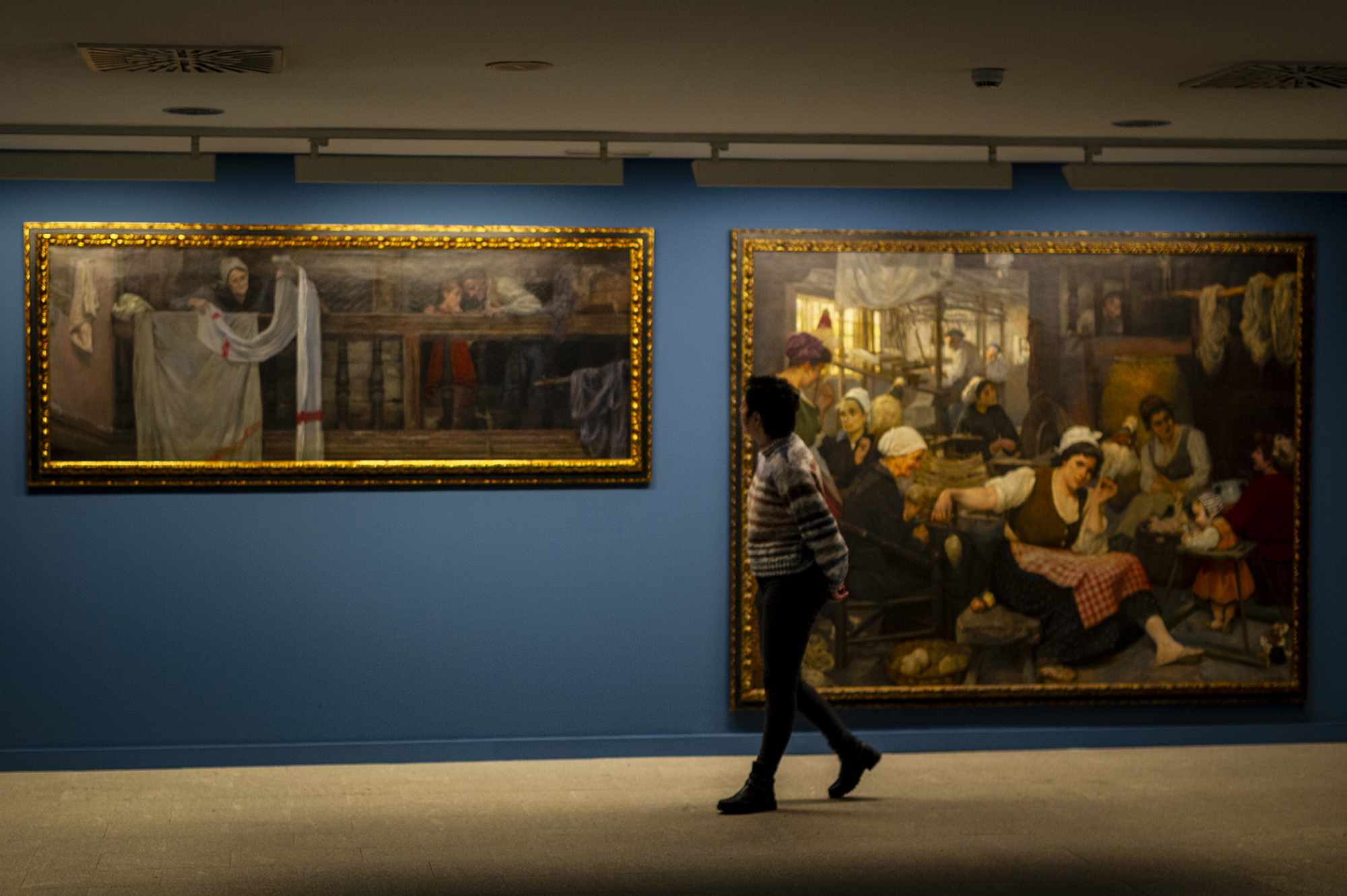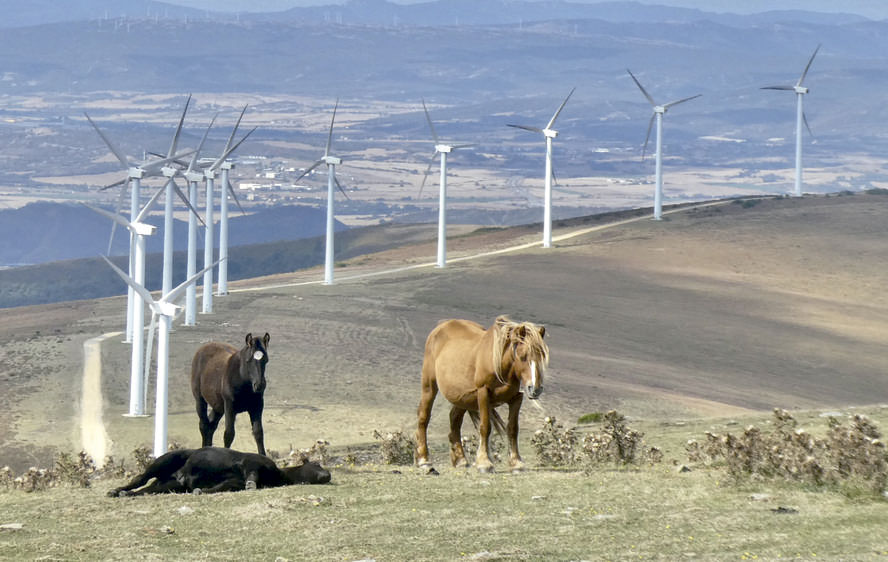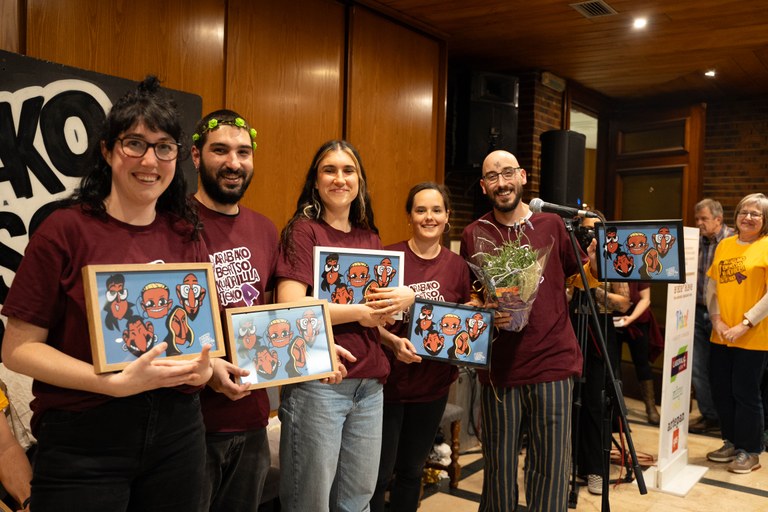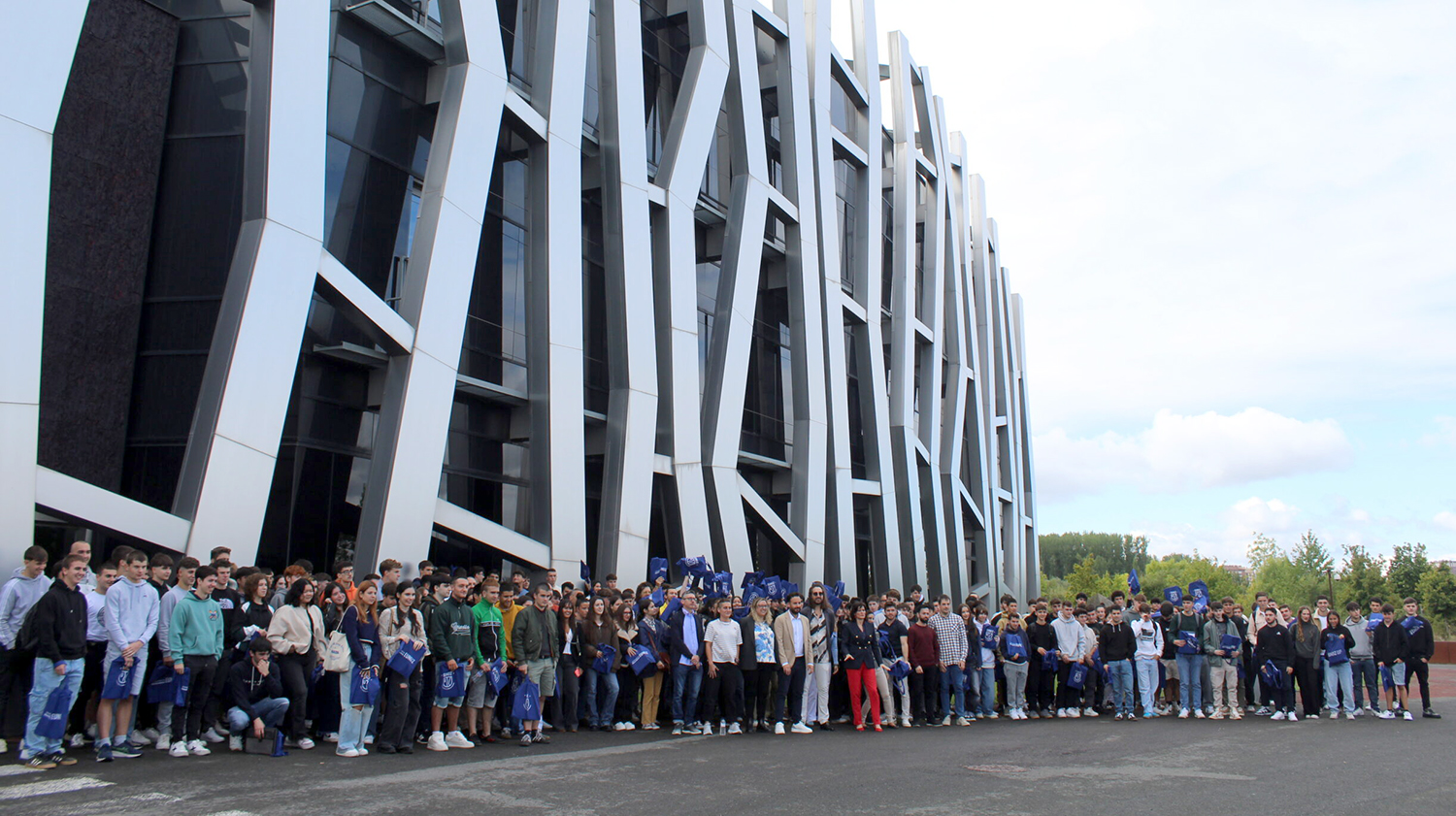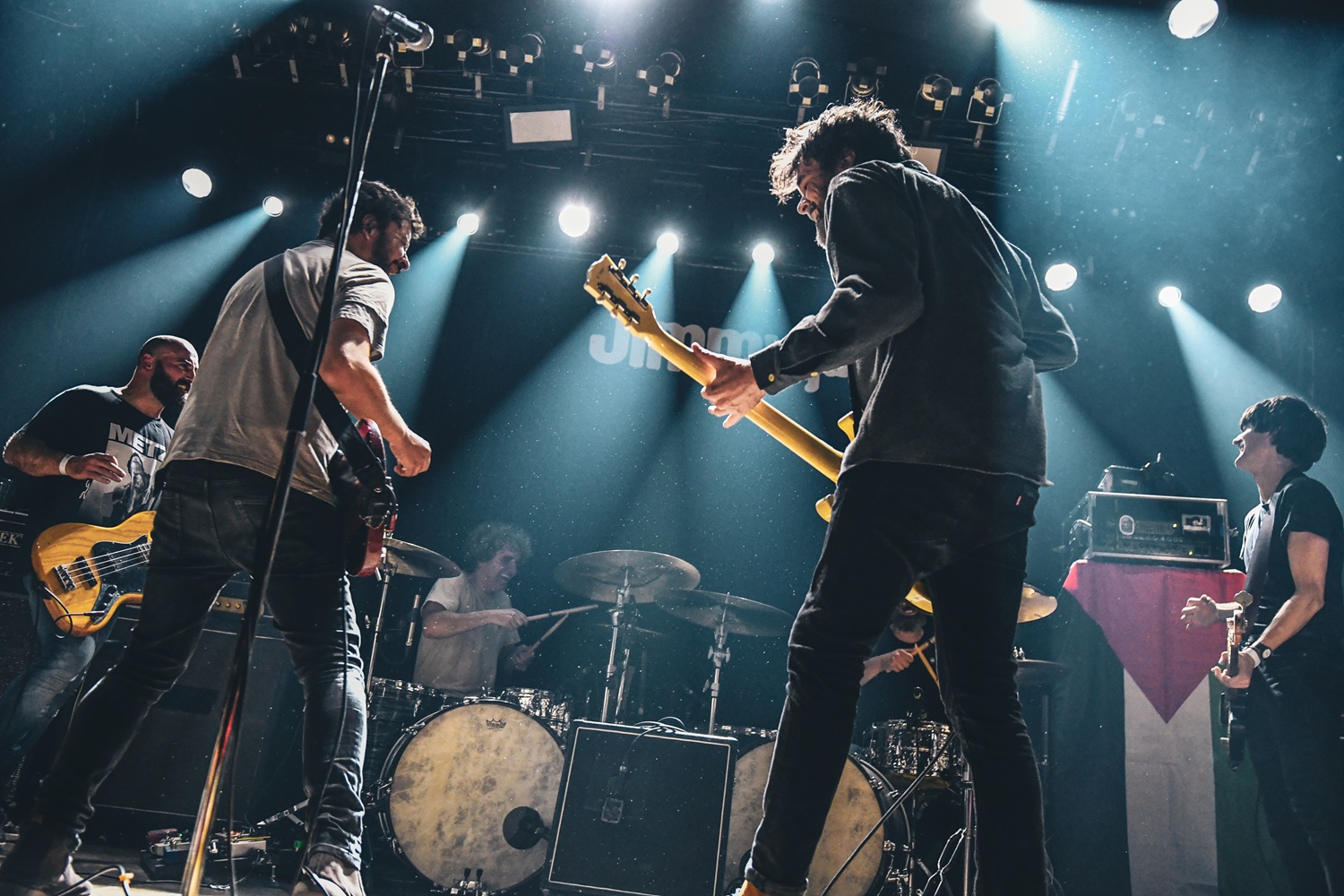Everyone also wants to live in their own language.
- Special program within the Hitz Adina Mintzo cycle. The rapporteurs were four vitorians in four languages. One was in Bulgarian; another was in pular; the third was in wolof; the last was in Quechua. The session was the result of the AnHitzak project, due to the linguistic diversity of Vitoria-Gasteiz.
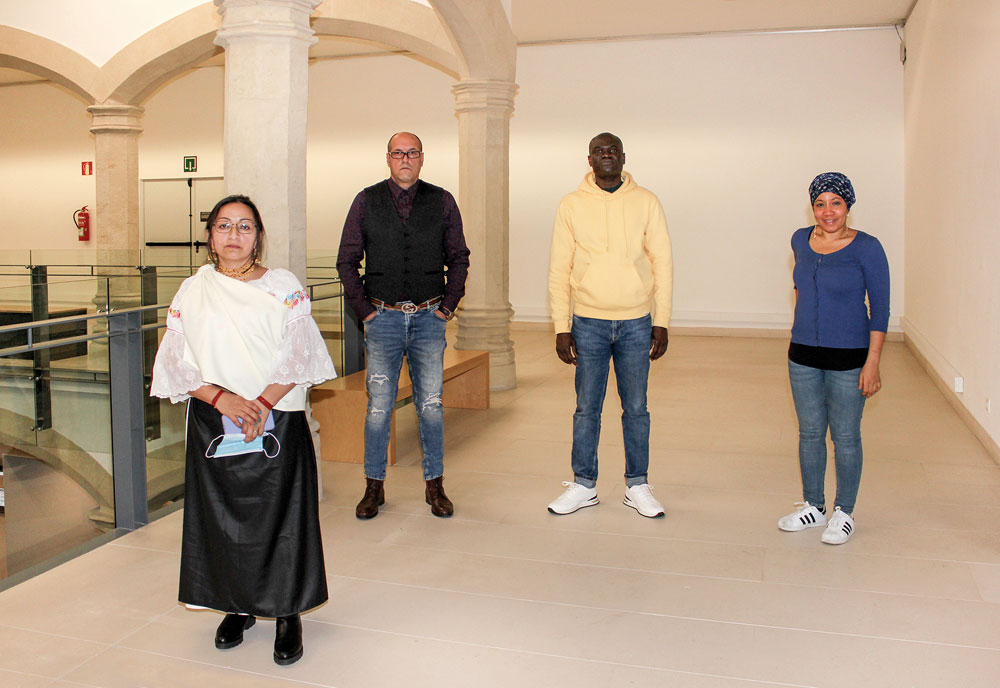
Amazigera, kurduera, sorabiera, lakota, nasa yuwea… advances in the 6th course of the cycle Hitz Adina Mintzo, directed by coordinators Beñat Garaio and Ainhoa Moron, to learn the minority languages of Gasteiz. Not all sessions are the same, and there are surprises and special ones among them. One of them was that of January, on the AnHitzak initiative, a project that has made visible the linguistic diversity existing in Gasteiz.
Anhitzak started walking in 2016, with the help of the Euskera Service of the City of Vitoria-Gasteiz and with the collaboration of Topagunea. The objective of the project is to value the linguistic diversity that live in the city, “because in addition to Basque and Spanish in its streets, there are many languages that are used daily”. Five years ago, the first meeting was held, in which, through dynamics of mutual knowledge, space was used to reflect on linguistic diversity, from its native language, gathering adults and young people, and organizing the childcare service. In October 2020 they wanted to make the second meeting, but of course they had to postpone… However, AnHitz members usually meet every month.
Until the date of the second meeting, four participants from AnHitzak participated in the cycle Hitz Adina Mintzo and his coordinator, Rubén Sánchez. This, however, intervened in the program sending a video, as it was confined by the tortuous COVID-19 incident. In this sense, the program was directed by Beñat Garaio. In the words of Rubén Sánchez, “more than 50 languages are used in the streets of Vitoria-Gasteiz, and AnHitz wants to acknowledge the value of that diversity. In the past, in Vitoria it was almost the only language. Over the past 30 years the Basque Country has travelled the way and, on the other hand, the linguistic landscape has changed considerably. Now they are more languages in Vitoria-Gasteiz, and that is good news, for language lovers in general, and for the Basque himself as well. This diversity is a great opportunity for all languages, which have common problems.” Sánchez referred to the fate of non-large languages and, in particular, to transmission. “It is as beneficial to them as it is to us to value the transmission of language and culture,” he said.
Nine linguistic communities participate in AnHitz, as recorded in the presentation video hanging on the net, and four participated in the conference corresponding to the cycle Hitz Adina Mintzo: Bulgarian, Pular, Wolof and Castilian.

Valuing Bulgarian
The President of the Gasteiz-Rodina Association, Iliyan Sabotinov Alendarov, was the first rapporteur. He explained that in 2015 they arrived in Vitoria, and in the Alavesa capital there are not many. “About 50 families, about 300 people. In Euskal Herria, the Bulgarians are more in Pamplona and much more in the large Spanish cities such as Barcelona, Madrid and Valencia”. To a greater or lesser extent, they have a partnership and are working to convey to their children the Bulgarian culture, language, history and folklore. “Most of our children are born here, speak Basque and Spanish when they are alone, the AnHitzak project helps us to value the Bulgarian.” That's why they participate in it.
In his speech, Sabotinov Alendarov intercalated a series of strokes about the history and geography of Bulgaria, saying that they want to integrate well here, for which it is appropriate that their descendants know the Bulgarian culture. “Transmission is our goal, and I would give the same advice to the participants of all the languages we have gathered here, regardless of their origin: respect local culture and teach ours. That is the basis and essence of coexistence,” he said.
For its part, the Ministry of Culture of Bulgaria reported sending materials to the Vitoria-Rodina association for the new generations present in Vitoria-Gasteiz to learn Bulgarian.
He also explained how some numbers, stations and verbs are pronounced in Bulgarian and, together with respect, stressed the importance of speaking in his own language.
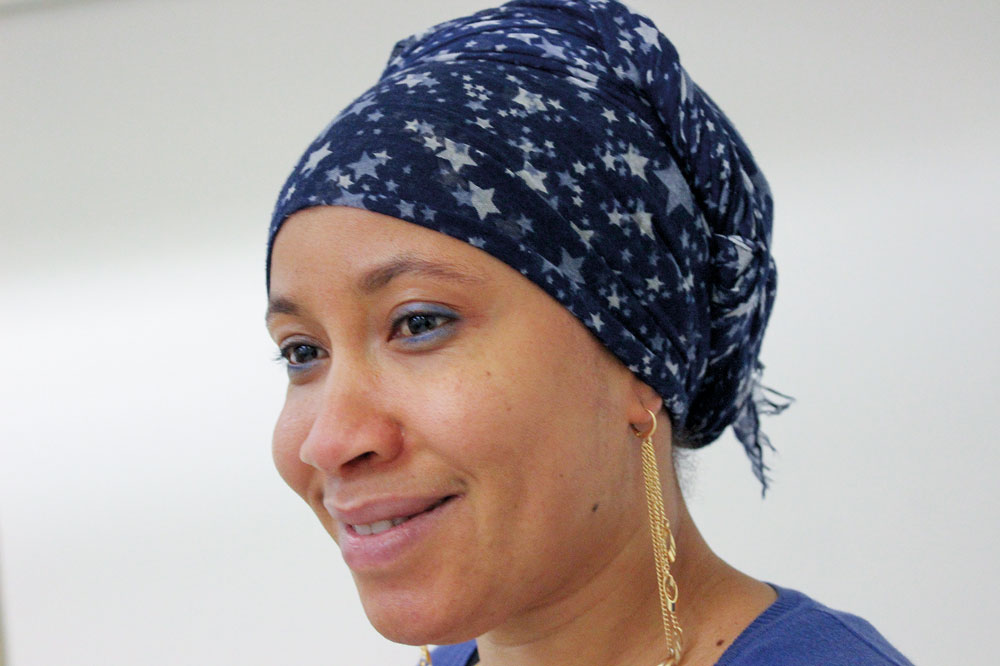
Pular and Euskera
Dienabou Bah Bah of the Haaly pular association was the next rapporteur. She began by saying she is married and mother of three children: “At home we all speak the mother’s language. On the street, the children do it in Basque and Spanish,” he said.
He made known his country, Guinea Konakry, geographically located on the shores of the Atlantic Ocean. The city of Konakry is the capital, with almost two million inhabitants. The former French colony, Bah Bahk, said that in school they study in French but not in pular, and, as Sabotinov did before, he told the numbers in pular.
The association was created in 2013 and says that it is also trying in Euskera, “because I want to help my children in the household tasks they bring from school and when necessary. And we participated enthusiastically in the events and festivities organized by AnHitz,” said Dienabou Bah Bah.

Wolof
Issa Sambe is a member of the Mbolo association and, in general, spoke about the wolof. The listener had the utmost attention, although in his comments he could only understand the presence of the Frenchman in the wolof: ‘Senegal’, ‘Euskal Herria’, ‘Vitoria-Gasteiz’…
Although Sambe himself came to us in 2009, the Senegalese association of Vitoria-Gasteiz was in 2006. “Mbolo was founded by the first five. Today we have 300 Senegalese registered in Vitoria-Gasteiz, and we know that there is more, because those who have obtained a work contract have also brought their families.” Sambe said that he is not able to give concrete quantities, but that there are more than 350.
He recalled that Senegal was a French colony, a country that in 1960 achieved independence, with 16 million inhabitants. Dienabou borders Guinea Konakry, the Ivory Coast, Mali and the Atlantic Ocean, and the Gambia is in the territory. “And to go to some villages in Senegal you have to go through Gambia: it is a country, Gambia, within our country!” The legacy of French colonialism, he said.
In the country, 40 per cent of the population speaks of wolof. The remaining 60% is composed of different ethnicities, each with their language. In addition to Senegal, there is also talk of wolof in Guinea Konakry, Ganbia, Côte d'Ivoire and Mali. “Before independence, for example, the present Senegal, Mali and Gambia were the same country. And Senegal was the same capital.”
In Vitoria-Gasteiz, they would like to strengthen the wolof culture and also teach the school, with the intention of transmitting the language and culture to the offspring. “In our house, we parents talk about wolof, but the children, however, are faced in Euskera.” He said that they have not had enough opportunity to learn Euskera, because “we came of age.”
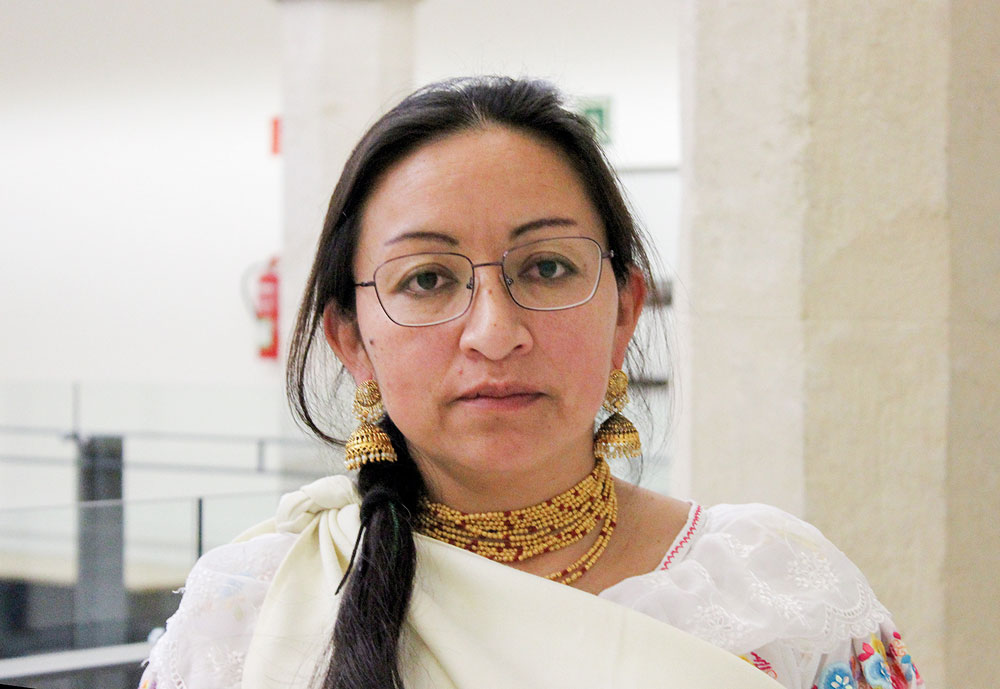
Isabel SÁnchez, Ikastola Landazuri
On behalf of the parents association of the Ikastola Landazuri spoke the last, Isabel Sánchez. Born in Ecuador, Kitxua is a member of the community. “Different languages are spoken in our country. In the Amazon area, for example, there are up to ten communities, each with their own language. In the mountains, up to five. And there are also varieties on the coast,” he said.
Isabel Sánchez herself arrived in Vitoria fifteen years ago. He then lived four years in Pakistan, then in Lleida (Catalan Countries), and returned to Vitoria. Motivates action on behalf of the parents of Landazuri Ikastola: “It’s a special ikastola, we’ve identified up to 25 communities we’re proud of. Proud and happy, because it's good for everyone." For, however, pride and joy. “The parents are working, meeting in the patio time and living that wealth. I think we are the first ikastola that we have come together and set in motion.” They have also published the annual calendar to make this diversity visible, although, above all, there is a concern: transmission. “In our case, children always ask the same thing: “Where are we from?” And it's not a matter of time, because one was born in Pakistan and three in Vitoria. In addition to the ikastola, diversity lives at home: “And to speak, Quechua little in us. The languages of the father predominate: the cast, the punjabal and, to some extent, English. However, our children are from here, more than from anywhere else. However, we will always have the need to speak of the languages and culture of our countries of origin, both at home and in the ikastola”. That's why they're working. “We want our ikastola to be an example.”
Four languages, besides sociolinguistics, full of life, in which native speakers give direct testimony. The opportunity to hear four first-hand languages. Four rapporteurs, an example of the 50 languages of Vitoria. In short, they did the four good words, accompanied by a short video in which each community showed their work in favor of their language, which can be seen on the net by clicking on ‘AnHitzak, the linguistic diversity of Vitoria-Gasteiz’.
Beñat Garaio, cycle coordinator, separate note: “The discourse, in the four speeches, nobody knows Euskera. In fact, foreign-born citizens who have so far spoken in Basque in Hitz Adina Mintzo live in respiratory areas, except for Roberto Anawa, a Cuban speaker, who lives in Basauri.”
And at the end of the session, all four of them got the warmest applause.
After the beginning of the rehabilitation work of the Reception Center for International Protection in the Arana neighborhood of Vitoria-Gasteiz, we have seen the need to reposition ourselves publicly as occupied and concerned neighbors and to make the Basque Country a true host... [+]
A few weeks ago, on Diputación Street, in the centre of Vitoria-Gasteiz, two men threw a homeless person off the small landing outside the place where he slept. In addition to being thrown away, a metal railing was immediately placed in front of the lonja. Although the place... [+]
%90eko jarraipen "ia erabatekoa" izan du grebak, sindikatuen arabera. Gasteizko parkeak, lorategiak eta eraztun berdea mantentzen dituzte Enviser azpikontratako 90 langileek.









